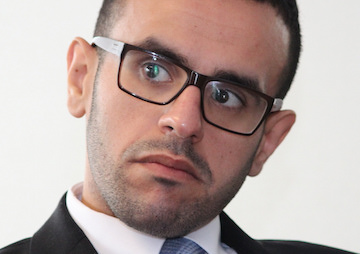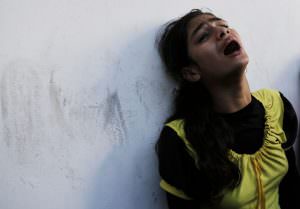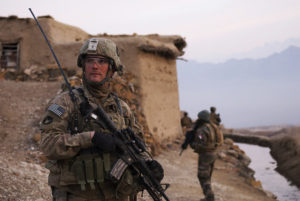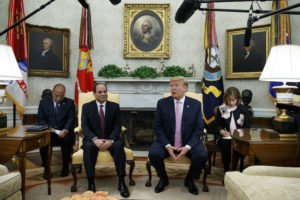Islamic State Recruitment Thrives in Brutal U.S.-Backed Egyptian Prisons
A 26-year-old dual U.S. and Egyptian citizen who endured “torture, deprivation and cruelty while locked in the prisons” of Egypt’s military dictatorship says the regime is effectively acting as a “recruiting agent” for militant extremist groups like Islamic State. Mohamed Soltan. (Sinn Fein / CC BY 2.0)
Mohamed Soltan. (Sinn Fein / CC BY 2.0)
A 26-year-old dual U.S. and Egyptian citizen who endured “torture, deprivation and cruelty while locked in the prisons” of Egypt’s military dictatorship says the regime is effectively acting as a “recruiting agent” for militant extremist groups like Islamic State.
“The regime is fostering an environment in their prisons that makes them a fertile ground for that kind of ideology to flourish,” says Mohamed Soltan, as quoted by the journalist Murtaza Hussain at The Intercept. “The brutality and the overwhelming loss of hope is creating a situation which fits [the Islamic State’s] narrative, and they’re using it to try and recruit people and spread their message.”
Hussain reports:
Soltan was released this year after a 400-day hunger strike in which he lost over 130 pounds and nearly died, saved only by the intervention of the American government on his behalf. Despite bending to pressure in his case, the Egyptian regime continues to hold as many as 41,000 political prisoners, recent Human Rights Watch estimates suggest. […]
On August 14, 2013, the military used deadly force to clear thousands of protestors who had encamped in Cairo’s Raba’a Square in protest against the new regime. At least 800 people were killed and thousands more wounded, including Soltan, who was among a group of media activists and journalists who had been broadcasting the event on social media. In the course of the deadliest massacre in modern Egyptian history, Soltan was shot in the arm by a government sniper. Weeks later, while still recovering from surgery, he was arrested at his family home in Cairo, as the new government pushed a nationwide arrest campaign against its opponents.
Once in government custody, Soltan got firsthand experience with the brutality of the new regime. Despite his broken arm, he was given a “welcoming party” by his captors upon arriving in prison: He and several other new prisoners were stripped to their underwear then forced to repeatedly run through two rows of guards who beat them with batons, whips and fists. “They deliberately beat me on my broken arm for more two hours [sic],” Soltan said, adding that his captors would periodically stop to pray in between torture sessions.
For the next two years Soltan would be shuttled around various prison facilities. While in jail, Soltan says he witnessed the recruitment efforts of Islamic State members. “There were people from across the spectrum of Egyptian society in jail: liberals, Muslim Brotherhood members, leftists, Salafis, and some people who had pledged allegiance to ISIS,” Soltan says. “Everyone felt depressed and betrayed, except for the ISIS guys. They walked around with this victorious air and had this patronizing and condescending attitude towards everyone else.” […]
Soltan says that during his captivity guards would also periodically allow ISIS members to come into his cell and talk to him, in what he believes was an effort to radicalize him. “They would come into my cell and start telling me this nonviolent stuff like hunger striking doesn’t work,” Soltan says. They would “brag that Islamic State was growing and expanding, and that soon their people would be running Egypt too.”
— Posted by Alexander Reed Kelly.
Your support matters…Independent journalism is under threat and overshadowed by heavily funded mainstream media.
You can help level the playing field. Become a member.
Your tax-deductible contribution keeps us digging beneath the headlines to give you thought-provoking, investigative reporting and analysis that unearths what's really happening- without compromise.
Give today to support our courageous, independent journalists.






You need to be a supporter to comment.
There are currently no responses to this article.
Be the first to respond.